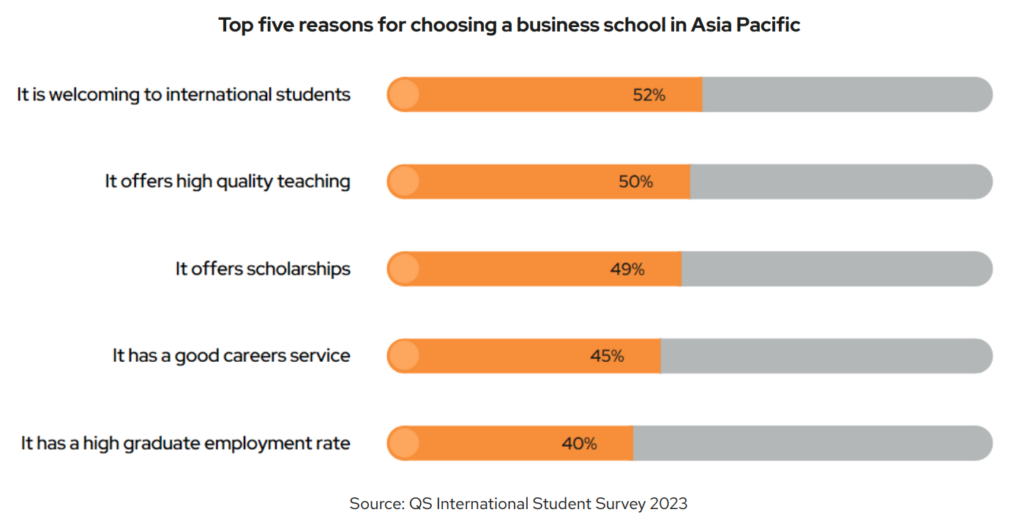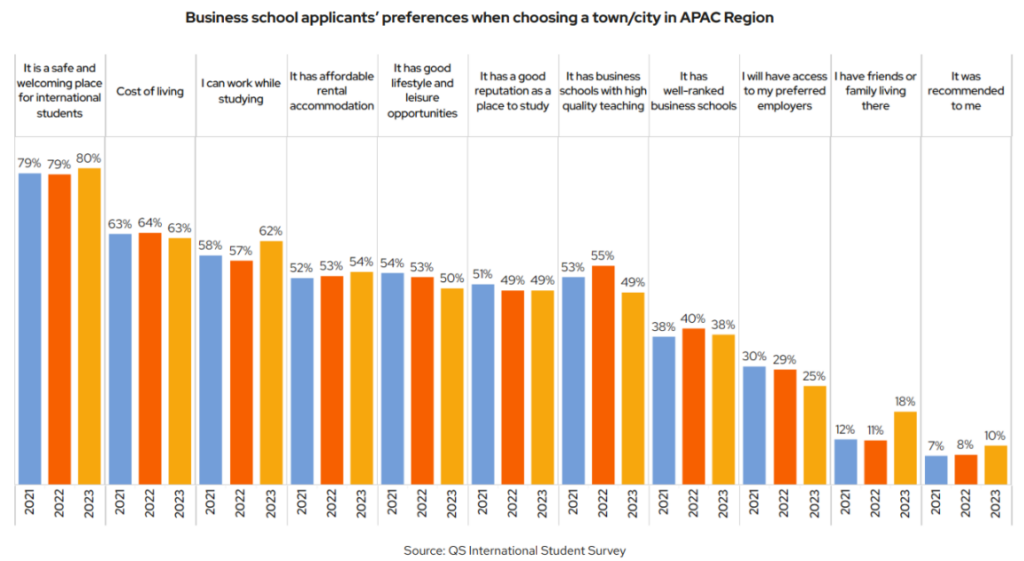
In a new QS report, titled “Business school applicant trends and motivations in 2024”, we reviewed the 11,000+ responses to the QS International Student Survey we received in 2023. With a three-year total of 28,010 responses, we have a global overview of GME candidates’ preferences, with 160 nationalities represented. A significant 54% of the responses came from Generation Z individuals, born between 1997 and 2002.
What motivates students to study in the APAC region?

Among the top motivations for applicants is the welcoming environment, with 52% citing it as a key reason. This aspect is particularly significant, as it underscores the region’s cultural inclusivity and openness, factors that are crucial for students venturing into a new country for their education. Another critical factor is the high quality of teaching, highlighted by 50% of applicants. Educational institutions in the APAC region are gaining recognition for their academic excellence, research opportunities, and innovative teaching methodologies. This emphasis on quality education is a major draw for students seeking a world-class learning environment.
We also asked the priorities of business school applicants when considering the APAC region and what would be important to them when choosing a city or town.
One of the key trends observed is the increased importance placed on safety and a welcoming environment for international students, which saw a slight rise from 79% in 2021 to 80% in 2023. This could be a response to the global state of affairs, where students are increasingly seeking stable and secure environments for their studies.
The presence of friends or family in the chosen study location has also seen a surprising increase in importance, rising from 12% in 2021 to 19% in 2023. This trend suggests that students are valuing personal networks more than ever, possibly for the emotional support and ease of cultural adaptation they offer in a foreign setting. Such insights are crucial for educational institutions and policymakers in the APAC region, underscoring the need to focus on creating inclusive, supportive environments that extend beyond the classroom.

These insights highlight the importance of fostering an inclusive, supportive environment that extends beyond the classroom.



